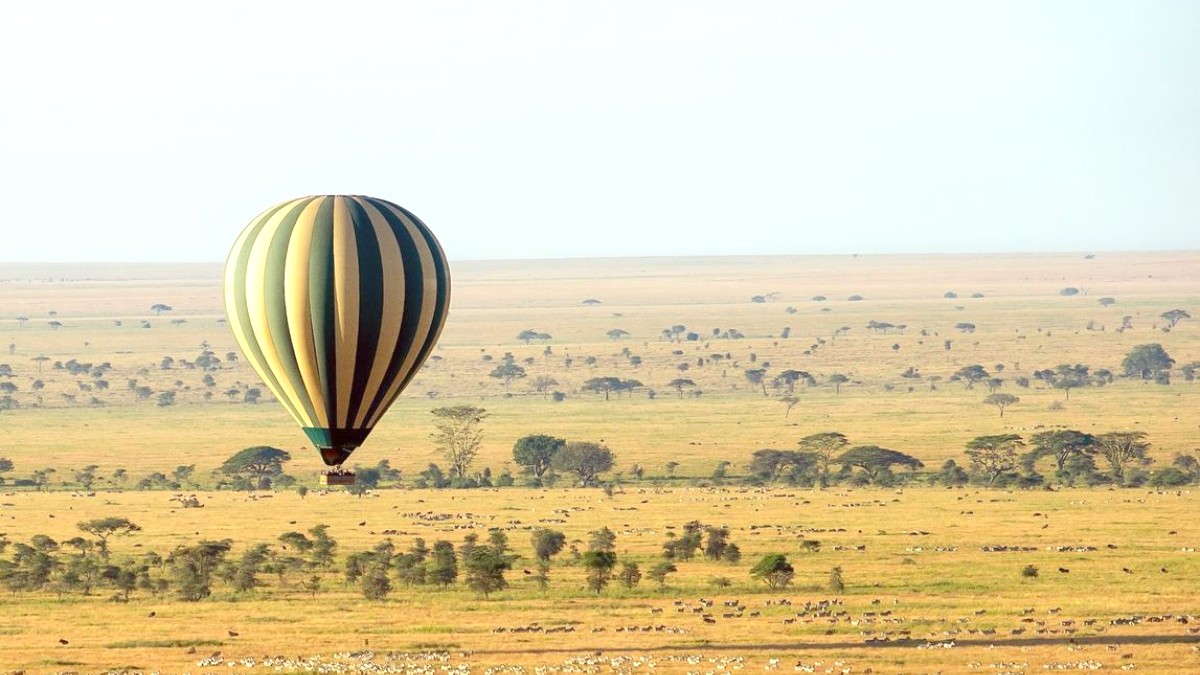
Northern Tanzania, Tanzania
Vodacom, Airtel, and Tigo are the main mobile network providers in Tanzania. Vodacom generally presents the widest network coverage, including some limited areas within Serengeti. A passport is a must for SIM registration. Data bundles are inexpensive.
Swahili (Kiswahili) is Tanzania's official and national language. English is widely spoken in the tourism industry by safari guides, lodge staff, and tour operators.
Learning a few more basic Swahili phrases gains appreciation from locals. Download an offline translation pack for assistance.
Familiarize yourself with some common animal names in Swahili. Postal services are not relevant for travelers within Serengeti National Park; these are found in major towns like Arusha.
Practice these phrases and learn about local customs. A respectful and informed traveler experiences the best of Serengeti. Embrace the differences and enjoy the journey.
Navigate cultural norms, airport services, and accessibility considerations.
Be prepared for passport control and visa processing upon arrival at major airports like JRO. Customs procedures are generally straightforward.
Baggage claim procedures are simple. Consider tipping porters for their assistance with luggage at airports and lodges.
Pre-arranged transfers from your tour operator await at the airport. Taxis are available in towns, but confirm fares beforehand to avoid misunderstandings.
Handshakes are common and polite. Use "Jambo" (hello) or "Habari" (how are you?) when greeting people. It shows respect to greet before immediately asking for something.
Avoid discussing politics or religion unless initiated by locals. Public displays of affection are generally frowned upon, especially for couples. Do not photograph government buildings or military installations without explicit permission.
Seek out specialized safari operators that cater to travelers with disabilities. These operators possess the most current and accurate information on specific lodge and vehicle capabilities, helping you plan a suitable itinerary.
Understand local dining customs and social interactions to enrich your visit.
Meals in camps are often communal, offering an opportunity to share experiences with other travelers. Camps have set meal times and specific schedules for activities.
Practice basic Swahili phrases; locals value the effort. Engage with locals respectfully. Avoid being overly familiar or intrusive. Public displays of affection are generally frowned upon.
Be mindful of photography ethics. Always ask permission before taking photos of people, especially children, and be aware of privacy concerns.
While not applicable within Serengeti National Park itself, if your travels take you to towns or cities with religious sites, observe these customs.
Travel with purpose. Your presence in Serengeti presents an opportunity to learn, enjoy, and contribute positively to its future.
Information to support accessible travel and responsible engagement with local communities and the environment.
For travelers with mobility challenges, planning bears much importance. Safari vehicles (high-clearance 4x4s) may challenge entry/exit. Park infrastructure (restrooms, visitor centers) may not be fully accessible.
Formal services for travelers with visual or hearing impairments may be limited. Rely on assistance from your safari guide and tour operator. Communicate your needs clearly when booking.
Waste management presents a challenge in remote areas like Serengeti. Lodges and camps try to minimize waste, especially plastics, and properly dispose of non-biodegradable items outside the park.
International and internal flights contribute to your carbon footprint. Some safari operators present carbon offsetting programs.
Your small actions contribute to the large goal of conservation. Be a mindful traveler, and consider ethical tour operators like G Adventures and supporting conservation efforts through The Rainforest Site.